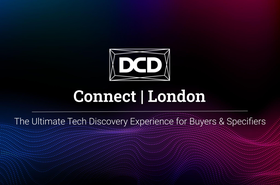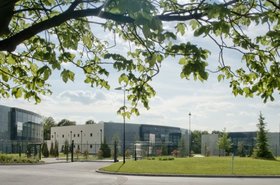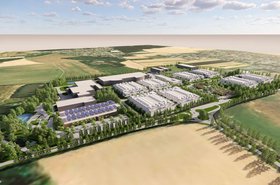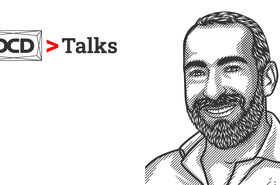In this DCD>Talks interview, DCD CEO Dan Loosemore speaks to Adam Levine, chief commercial officer at Data4, live from the main stage of DCD>Connect, London. On the agenda was the influence of artificial intelligence (AI) on future data center design and the wake-up call it presents for the industry.
Levine points out that the first problem, at this stage, is that we’re not set on a definition of what we mean by AI: “I think we're still in the very early stages of defining what AI is. If you think about it, we've been talking about Edge cloud for many years, and there's still no agreed definition.
“I think we're going to be seeing that with AI for a while. The reality is that we are seeing a huge increase in the demand for GPUs and, whatever definition you give to AI, the underlying tech is still servers running cores with GPUs that require power and require space for security.”
Underlying this point, Levine points out that large chunks of the conversation around AI don’t affect data center operation at all: “You've got natural learning processes, machine learning, robotics, and generative AI. Robotics is going to be super high latency-sensitive, where any tech that is driving robotics needs to be on-site.
“What we're talking about is the machine learning and inference element of the training and inference elements of AI, which is where we're going to be seeing the most impact in our industry. It’s where you're seeing a lot of flurry of activity, as we all try to understand what those impacts are.”
And it’s not just our industry that needs to brush up its understanding of AI: “Oliver Dowden (then UK Foreign Secretary), was in New York a couple of weeks ago speaking to the UN about regulation, and referred to AI as the biggest threat to humanity. I would love to sit down and understand what he knows about AI. I guarantee it's probably the square root of Frogger, or it's just a lovely soundbite to throw out there because I don't believe that AI is the biggest threat to humanity. Oliver Dowden is probably a bigger threat to humanity.”
But regardless of the definition, the need for the data center to adapt to meet AI’s demands is vital: “The onus is on us to ensure that we use power efficiently because nobody wants to stop streaming, nobody wants to stop using their smartphones, nobody wants to stop using Apple Pay. They want to keep using the tech that we have at our disposal, but they don't want that at the cost of their ability to take a hot shower or heat their homes in winter. So very much the onus is on us.”
To find out more about Levine’s ideas on how the AI revolution will change where we locate our data centers and could be the solution to the power-supply issues it is helping to create, you can catch the whole DCD>Talks presentation here.
More from Data4
-

-

Data4 secures €2.2 billion debt facility
Company raises funds for European expansion plans
-

Data4 announces plans for third Paris campus
European operator acquires former Nokia HQ site

